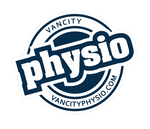Are you dealing with chronic pain, muscle tightness, or limited mobility? If so, you might have come across various treatment options, but one that’s gaining traction in the physiotherapy world is Intramuscular Stimulation (IMS) therapy. This innovative technique offers a fresh approach to tackling musculoskeletal pain by targeting underlying issues at their source. In this blog, we’ll explore what IMS therapy is, how it works, its applications, and what you can expect during treatment.
What is Intramuscular Stimulation (IMS) Therapy?
Intramuscular Stimulation is a specialized form of dry needling used by physiotherapists to address muscle tightness and pain. The technique involves inserting fine, sterile needles into specific trigger points in the muscles. Trigger points are hyperirritable spots that can arise from factors like overuse, injury, or stress, leading to localized pain and even referred pain in other areas of the body.
How Does IMS Work?
The magic of IMS lies in its mechanism:
-
Trigger Point Identification: Your physiotherapist will begin by assessing your condition, identifying areas of muscle tightness, or what are known as trigger points.
-
Needle Insertion: Fine needles are inserted directly into these trigger points, often causing a local twitch response in the muscle. This response is vital, as it signals a reset in the muscle's neurological state.
-
Neuromuscular Reset: The needle's insertion helps modulate pain pathways in the nervous system. By calming the nerve signals associated with pain, IMS effectively reduces discomfort.
-
Improved Blood Flow: The procedure enhances blood circulation to the affected area, delivering much-needed oxygen and nutrients, while facilitating the removal of metabolic waste. This promotes healing and reduces inflammation.
Applications of IMS Therapy
IMS therapy has a broad spectrum of applications and can benefit individuals dealing with:
-
Chronic Pain: Conditions like fibromyalgia and myofascial pain syndrome can see significant relief through targeted treatment.
-
Sports Injuries: Athletes often face muscle tightness from repetitive strain, and IMS can help alleviate these issues, promoting faster recovery.
-
Postural Problems: Poor posture often leads to muscle imbalances. IMS can address these imbalances, alleviating pain and improving overall posture.
-
Neuropathic Pain: For conditions with neuropathic components, IMS can influence nerve function, providing pain relief.
What to Expect During Treatment
When you arrive for IMS therapy, here’s what typically happens:
-
Assessment: Your physiotherapist will conduct a thorough evaluation, discussing your pain history, functional limitations, and identifying trigger points.
-
Treatment Session: Each session usually lasts between 30 to 60 minutes. The insertion of the needle may cause a slight prick, and you might feel a brief, sharp sensation followed by a deep ache in the muscle.
-
Post-Treatment: After treatment, some soreness in the area may occur, akin to what you’d feel after a workout. This sensation is generally temporary, subsiding within a day or two.
-
Combination Therapy: IMS is often combined with other physiotherapy modalities like manual therapy, exercise rehabilitation, and education on ergonomics for a comprehensive approach.
Safety and Considerations
While IMS therapy is generally safe, it’s crucial to ensure it’s performed by a qualified practitioner. Here are some key considerations:
-
Qualified Practitioners: Always seek treatment from trained physiotherapists experienced in IMS therapy to minimize risks.
-
Contraindications: Certain conditions, like bleeding disorders or specific skin infections, may contraindicate IMS. A thorough medical history will help identify any potential risks.
-
Informed Consent: Understanding the procedure, its purpose, and possible side effects will allow you to make an informed decision about your treatment.
Conclusion
Intramuscular Stimulation (IMS) therapy represents a powerful tool in the management of musculoskeletal pain and dysfunction. By addressing the root causes of pain through targeted needling, IMS can significantly improve your quality of life, mobility, and overall well-being. If you’re considering this treatment option, consult a qualified physiotherapist to explore whether IMS therapy is right for you.
Don’t let pain hold you back—discover the benefits of IMS therapy and take the first step towards a pain-free life today!
Call 604-398-5584 and book with one of our highly skilled professionals.


